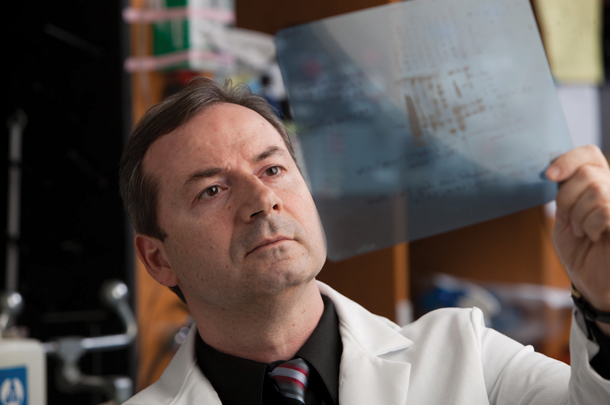Resistance of leukemia cells to contemporary chemotherapy is one of the most formidable obstacles to treating the most common form of childhood cancer, known as acute lymphoblastic leukemia (ALL). Now researchers at Children’s Hospital Los Angeles (CHLA) and USC have designed and developed a new protein-based therapy they believe will prove highly effective against drug-resistant leukemia cells.
The new approach may also amplify the potency of treatment options such as chemotherapy and radiation therapy.
The work, published online Jan. 26 by the Journal of Clinical Investigation, demonstrated the effectiveness of the new fusion protein in mouse models using leukemia cells taken directly from patients with ALL, which represents about 25 percent of cancer diagnoses among those age 15.
The cancer once had a very high mortality rate, but today almost 80 percent of children affected by ALL achieve long-term survival.
“That’s great news, unless your child is one of the 20 percent,” said the study’s principal investigator, Fatih M. Uckun of the Children’s Center for Cancer and Blood Disease at CHLA and USC Norris Comprehensive Cancer Center. “Despite advances in available therapies, unmet and urgent needs remain in the fight against leukemia. We still have children with disease that our drugs can’t help enough. And for patients who relapse, their chances of long-term survival are less than 20 percent. We’ve got to do better.”
— Debra Kain


